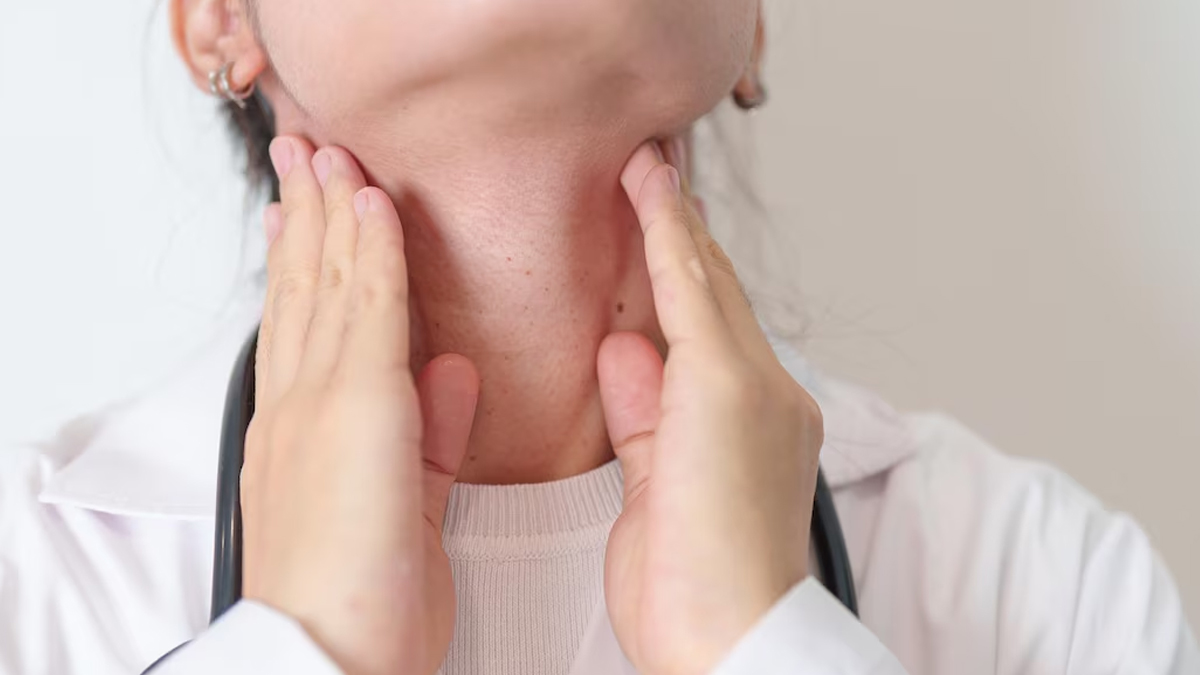
It may come as a surprise to you when you learn that our thyroid has several roles to play. It produces hormones that not only regulate metabolism, but also control body temperature and heart rate. This tiny, butterfly-shaped gland also plays a crucial role in children’s growth and development. However, when this gland fails to make sufficient hormones, it leads to a condition called hypothyroidism, or underactive thyroid.
Table of Content:-
Hypothyroidism can cause tiredness, weight gain, cold intolerance, and dry skin. In certain cases, it may also lead to joint pain, especially in the hands and knees. Speaking with the OnlyMyHealth team, Dr Soumya Chakraborty, Consultant Orthopaedics, Fortis Hospital Anandapur, sheds light on the link and lists ways to reduce joint pain caused by hypothyroidism.
Also Read: Can Fatigue Signal Thyroid Disorder? How To Know For Sure
Why Hypothyroidism Causes Joint Pain

A lack of thyroid hormones can interfere with how your body repairs and maintains bones and cartilage, which can cause joint problems and pain, explains Dr Chakraborty.
Moreover, hypothyroidism leads to slower metabolism, which further causes fluid retention in joints and brings about changes in muscles and connective tissue functions.
According to the Mayo Clinic, some of the common muscle and joint problems include:
- Muscle aches, tenderness, and stiffness
- Joint pain and stiffness, particularly in the hands and knees in adults
- Swelling of the small joints in the hands and feet
- Carpal tunnel syndrome
Treatment Options To Consider

According to Dr Chakraborty, the most effective treatment for joint pain caused by hypothyroidism involves treating the underlying cause, which is the thyroid hormone deficiency, which will simultaneously reduce symptoms like joint pain.
This is why thyroid hormone replacement therapy is the most effective treatment to get thyroid hormone levels back to normal, the doctor shares.
Thyroid hormone replacement therapy is a treatment option that uses synthetic thyroid hormones to make do for the deficiency caused by hypothyroidism. It corrects the thyroid hormone shortage in people with hypothyroidism and increases joint comfort and mobility by lowering inflammation, enhancing metabolic functions, controlling fluid retention, and promoting the health of muscles and cartilage.
In addition, anti-inflammatory medications or pain relievers such as Nonsteroidal Anti-Inflammatory Drugs (NSAIDs) can help reduce joint pains, whereas physical therapies may help reduce stiffness of the muscles.
Also Read: The Right Way To Take Your Thyroid Medication, As Per An Expert
Role Of Lifestyle Changes
While thyroid hormone therapy is an effective way to treat hypothyroidism, lifestyle changes may complement that treatment plan. Some of the healthy habits to follow include:
- Indulging in regular physical activities like exercising, walking, swimming, yoga, and strength training
- Eating anti-inflammatory foods like nuts, seeds, fruits, and green leafy vegetables
- Avoiding processed foods
- Ensuring adequate intake of vitamins and minerals in diet
- Maintaining a healthy weight
- Drinking plenty of water
- Quitting bad habits like smoking and alcohol consumption
- Getting adequate sleep for faster recovery
What Else To Keep In Mind If You Have Hypothyroidism?

Joint pain is a common condition and can be caused by various factors and underlying medical conditions. And therefore, this pain can sometimes be hard to distinguish from other conditions. That's when you must note other accompanying symptoms like fatigue, weight gain or difficulty losing weight, cold sensitivity, dry skin and hair, constipation, and mood swings. Highlights Dr Chakraborty.
"The nature of the joint pain itself can also be indicative, such as symmetrical pain (affecting the same joints on both sides of the body), morning stiffness, and worsening pain in cold weather," he adds, concluding that unexplained inflammation or swelling in the joints, without any apparent injury, can, however, point towards hypothyroidism as a potential cause.
Also watch this video
How we keep this article up to date:
We work with experts and keep a close eye on the latest in health and wellness. Whenever there is a new research or helpful information, we update our articles with accurate and useful advice.
Current Version